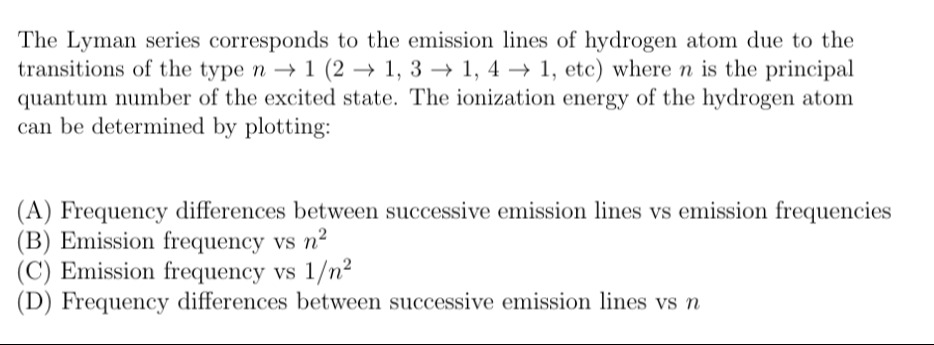Question
Question: The Lyman series corresponds to the emission lines of hydrogen atom due to the transitions of the ty...
The Lyman series corresponds to the emission lines of hydrogen atom due to the transitions of the type n→1 (2→1,3→1,4→1, etc) where n is the principal quantum number of the excited state. The ionization energy of the hydrogen atom can be determined by plotting:

Frequency differences between successive emission lines vs emission frequencies
Emission frequency vs n2
Emission frequency vs 1/n2
Frequency differences between successive emission lines vs n
Emission frequency vs 1/n2
Solution
The energy of emitted photons in the Lyman series (n→1) is hν=13.6(1−n21) eV. Rearranging gives ν=h13.6−h13.6n21. This is a linear equation of the form y=c−mx, where y=ν and x=n21. The y-intercept (c) is h13.6. When 1/n2=0 (corresponding to n=∞), the frequency is νmax=h13.6. The energy associated with this frequency, hνmax=13.6 eV, is the ionization energy of the hydrogen atom. Thus, plotting emission frequency vs 1/n2 yields a straight line whose y-intercept gives the frequency corresponding to the ionization energy.
